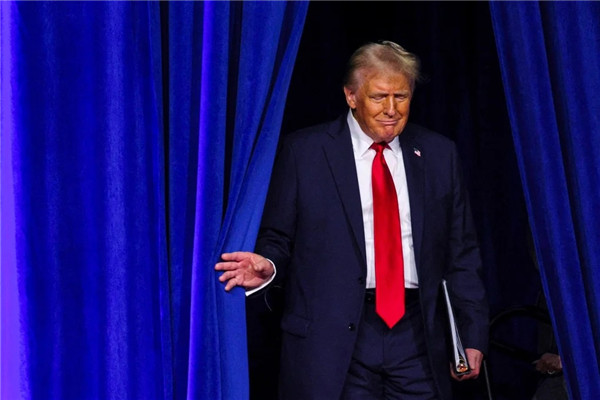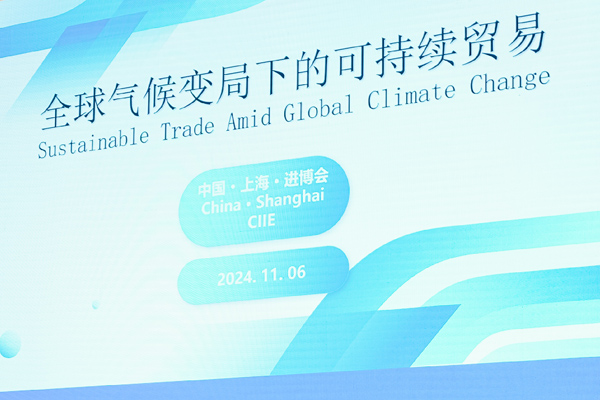[CGTN] China, U.S. must live in same world despite disagreement
November 14 , 2020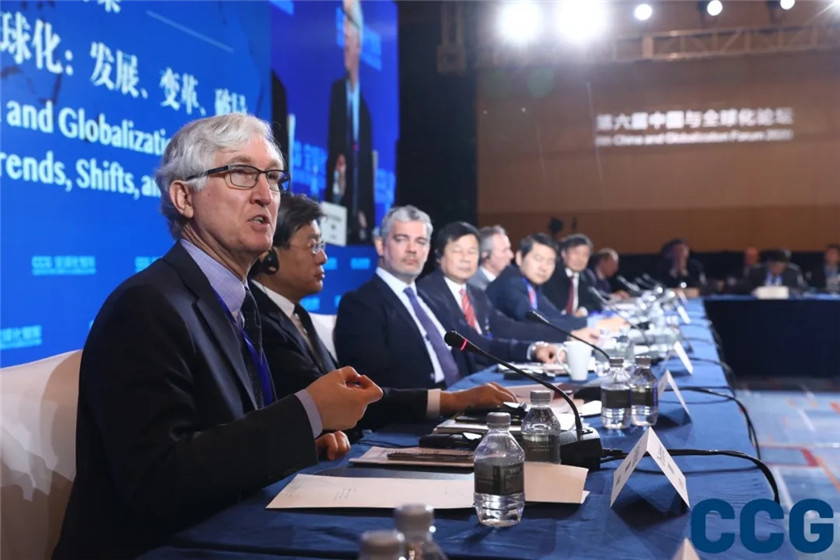
The interview was conducted on the sidelines of the Sixth China and Globalization Forum of the Chinese think tank CCG, where political analysts and scholars convened to talk about the current state of geopolitics and where things are headed amid the volatility in international relations.
While U.S. President Donald Trump continues to contest the election results that media outlets have called in favor of Joe Biden, some countries are breathing a sigh of relief while others are already analyzing how a Biden administration will affect them.
Chief among these concerns is the China-U.S. relations, which under Trump have taken a turn for the worse on the trade and technology fronts.
CGTN reporters Wang Xiaonan and Zeng Ziyi have spoken to Stratford, former chairman of the American Chamber of Commerce (AmCham) in China, in Beijing.
Stratford has lived in China for most of the past 38 years and worked as the assistant U.S. Trade representative in charge of the U.S.-China trade negotiations on the U.S. side. An experienced lawyer and government official, he has his own observations on the protracted trade friction between the world’s two biggest economic titans, how to bridge the gap, and what a Biden presidency will bring to the economic tangle between the two countries.
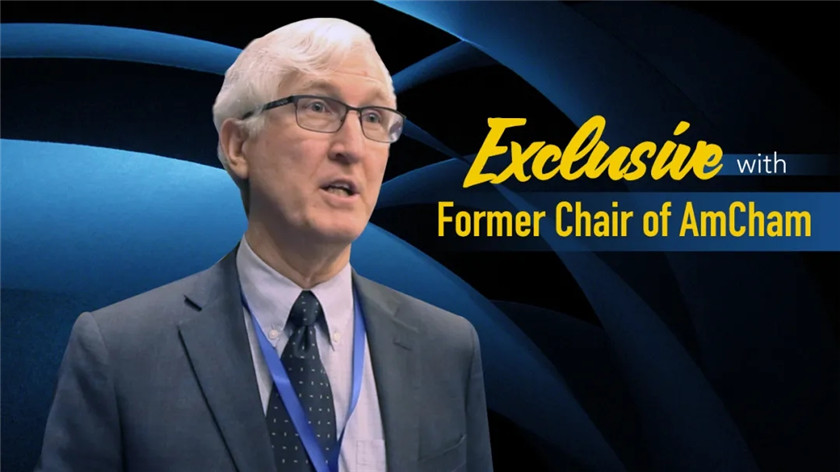
The interview, below, has been edited for clarity.
CGTN: What are some of the most significant changes in China over the almost four decades that you’ve been here?
Stratford: The changes in China have been incredible. I wonder whether there has been such a great change in the history of the world that has happened so quickly and affected so many people. I think it’s been quite a historical thing for me and my family to be observers of that period.
The world economy keeps adjusting to new circumstances and new technologies. China’s economy has certainly grown tremendously. When I was first here, the workers in the hotel I lived in earned some 20 yuan a month. Now people make thousands of yuan a month at least. We can see the living standards, the materials, the buildings, the roads … everything is much more advanced than when I was back in those ages.
CGTN: How do you rate Trump administration’s trade policy toward China over the past four years?
Stratford: Most Americans, and people in other countries I’ve talked to, think that some of the problems are related to the differences between our economic systems. They were valid. These were real problems.
But we haven’t made a lot of progress in reconciling some of the differences. For example, in China when the state gets more involved in supporting certain industries, companies receive subsidies and other forms of support. But it’s hard to compete in the same way when they are competing against companies from other countries that don’t receive that from their governments.
I think people have different views about what’s the best way to deal with the differences.
CGTN: Do you think a Biden presidency will change the U.S. strategy toward China?
Stratford: I think the approach [under a Biden presidency] will change in a number of ways, but we have to see because we don’t know the key advisors and all the details. But we know where the problems are; we know the campaign.
President-elect Biden and people around him talk about trying to work more with other countries, making use of multilateral systems like the WTO, and trying to cooperate more to deal with problems rather than just having the U.S. do it on its own.
In general, there has been some criticism that the use of tariffs hasn’t been a totally successful approach in trying to solve the problems.
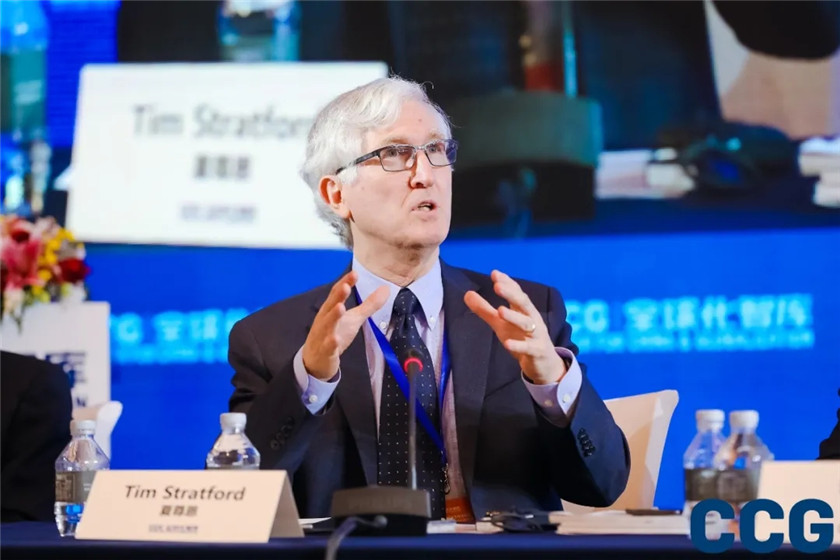
CGTN: Will a Biden presidency end the trade war?
Stratford: I don’t know whether “trade war” is an accurate way to describe the current situation. Right now both countries are having a trade truce. We are not increasing tariffs on one another’s products; there are a lot of goods and businesses going on between the two countries.
I don’t think there’s exactly a trade war now, but I do think there are problems that both countries need to work together on to try to resolve.
CGTN: Will Biden entering the White House continue Barack Obama’s legacy in containing China in technology, as a chip battle was already brewing in the Obama era?
Stratford: Both countries have concerns about their national security. The challenge is that we have new technologies now that are important for our economies, but they are also important for our militaries, they create vulnerabilities in our societies. I think both Chinese and U.S. governments are struggling to figure out what’s the best way to have trade between our countries but also to protect our national security.
China has passed its export control law very, very recently, coming into effect on December 1.
It’s a question of what’s the right way to resolve them. Can the countries develop good rules that make sense? Can they develop enough trust to work together on this? That’s the challenge we have.
CGTN: What do you think China should do in response?
Stratford: In a way the U.S. is waiting to see what China will do, and China is waiting for the U.S. to take action. I think once the new administration is in place, both sides will sort of be exploring. Are they willing to talk again? How do they want to do it? I’m sure that after a little bit of time, both sides will find the best way to do it.
CGTN: In which areas can the two sides cooperate in the near future?
Stratford: I think the two sides can cooperate in almost every area, but the level and the depth of cooperation may vary. Even if we disagree very strongly on a particular subject, we still have to develop a way where we can still live in the same world with that disagreement.
During the Cold War, the U.S. and the Soviet Union were adversaries, but they worked out arrangements that they could cooperate in a sense that we avoided war and a lot of other difficulties. So I think we can cooperate across a very wide range. Sometimes the cooperation may be very close because we see our interests and our approaches to be very similar. But in other areas, cooperation will be more limited, but we still need to find ways to manage our differences.
CGTN: Do you think the coronavirus pandemic is changing the global economic landscape?
Stratford: COVID-19 has a significant impact. I don’t know if changing the international order is an overstatement. But countries are looking at their supply chains, they want to make sure that they are safe in handling these. So I think every country is thinking about what they’ve learned from the pandemic.
One good thing from the pandemic is that it has unleashed a whole flood of people coming up with new ways to do their businesses. At least one of the positive things is the human spirit as we react to this disaster.


